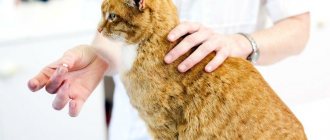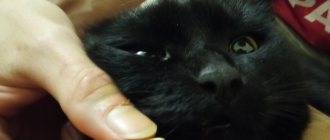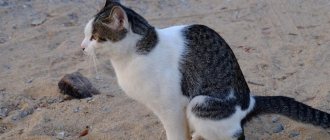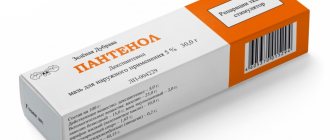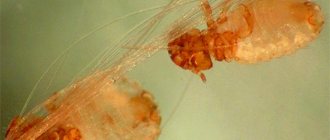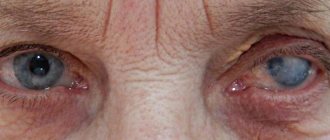Worms
(scientific name
helminths
) are worms that live inside humans. Worms are parasites, that is, organisms whose life activity is based on the exploitation of the host organism.
Helminths (worms) are the most common human parasites. According to research, every 4th person in the world is infected with worms. 70 species of worms have been registered in Russia. They all belong to three classes: roundworms, flatworms and flukes. The most common roundworms are roundworms, mainly pinworms, roundworms and whipworms.
There are also intestinal and extraintestinal helminths. Intestinal are those that live in the lumen of the human intestine, and extraintestinal (or tissue) are those living in muscle tissue or organs. Worms can affect the brain, lungs, liver, and lymphatic vessels.
Several types of helminths can parasitize one person at once, and this is a fairly common situation.
Infection of a person with worms is called helminthic infestation
.
helminthiasis
is also used .
Causes of helminthiasis
How does worm infection occur?
Adults inside humans lay a huge number of eggs (hundreds and thousands per day). Worm eggs are excreted from the human body along with feces. In order for a new host to become infected, it is necessary for the helminth eggs to enter his intestines. In most cases, this occurs along with food intake, for example, when eating with unwashed hands or when eating unwashed vegetables and fruits. Some types of helminthic infestations are geohelminthiases. In this case, the eggs of the parasite must first mature by being in the soil for some time (such as roundworms). Other types of worms are used for the maturation of intermediate “hosts” - animals. These are tapeworms - the most famous of the flat parasitic worms - bovine and pork. Their larvae mature in the muscles of animals and enter the human body along with meat that has not undergone proper heat treatment, and already inside a person they turn into an adult.
The opposite situation is also possible, when the human body is used by the helminth as an incubator for the larvae. The final host of such parasites is a predator. The predator is expected to catch the prey and eat the meat infected with the larvae. In this regard, a person is a dead end - a larva that gets into it will no longer turn into an adult, but the larvae
predator worms can cause us a lot of harm. In the human environment, two typical predatory animals are a dog and a cat. They can become a source of infection. The eggs of worms from these animals enter the human intestine, where they hatch into larvae, which can then migrate throughout the body. The liver is most often affected. To prevent infection from pets, you should not kiss them, and a dog that can become infected with helminths while running along the street must be subjected to regular treatment for worms.
Also, worm eggs can enter our body through inhalation of dust or with a sip of water when swimming in a pond. Flies carry worm eggs.
What is deworming and why is it needed?
Deworming is measures aimed at destroying existing parasites or preventing their appearance. Worms are harmful not only to animals, but also to humans. For the safety of the whole family, it is important to prevent their appearance by all means.
For prevention purposes
Preventative treatment is carried out not only for those animals that constantly go outside, but also for couch potatoes. The likelihood of a pet becoming infected is lower, but it still exists. Risk factors include feeding with natural products, namely meat, fish and offal. Such food is often contaminated with parasites. The second source of danger is grass brought from the street.
Before vaccinations and travel
After vaccination, the immune system is weakened, since all its forces are aimed at fighting the introduced virus. A recently vaccinated animal is more vulnerable to helminths. Therefore, before vaccination, it must be dewormed.
Before going abroad, you will have to find out in advance how to properly deworm a cat. The mustachioed traveler will need a veterinary passport and veterinary certificate form No. 1. These documents contain notes on vaccinations and all anti-parasitic treatments. The certificate is issued on the basis of a veterinary passport, clinical examination, fluorescent diagnostics and the results of an analysis for helminths. Its validity period is only 5 days, so all necessary procedures are carried out in advance.
Pre-treatment will also be necessary for those who decide to go to the country. The likelihood of infection in nature is higher, and without additional protection, the pet runs the risk of acquiring parasites.
Deworming is mandatory for mature animals 2-4 weeks before mating. This is necessary to ensure that the expectant mother does not get helminthiasis - it is forbidden to treat a pregnant cat with almost all drugs. In addition, there is always a risk of infection of the offspring.
As a treatment
Infected pets are treated not once, but twice. The first time, anthelmintic drugs kill adult individuals, and the second time, they kill grown-up worms that have hatched from eggs.
Worms in children
Children become infected with worms more often than adults. Small children tend to put everything in their mouth. While walking, children play on the ground and in the sandbox. They can hug and kiss strangers and stray animals. They don't care about dirty hands.
Therefore, it is so important to try to instill hygiene skills in children as early as possible. Young children should be supervised during walks, always having water and disinfectants ready to wash their hands and wipe their faces in time. And at the first signs of helminthic infestation, you should consult a doctor.
In Moscow, the most frequently detected helminth infections are enterobiasis and ascariasis.
Emergency care for intoxication or poisoning with anthelmintics
Are you experiencing lethargy, loss of consciousness, vomiting, a pre-coma state, decreased body temperature, tremors, or other signs of poisoning? - Let's act immediately!
- Gamavit at the withers, dose according to instructions.
- Saline solution at the withers, calculated by weight.
- Repeated dose of absorbents is forced.
- After 40-60 minutes - a drug that supports the kidneys, you can collect Detoxify.
- Repeated dose of laxative - the animal must defecate!
- In case of obvious poisoning, induce vomiting – forcibly.
- Does the condition not improve within 2-3 hours? - To the doctor!
Enterobiasis – helminthiasis caused by pinworms
Pinworms are detected more often than other helminths (in 90% of cases of detection of worm infection).
Pinworms are grayish-white roundworms ranging from 2 to 12 mm in length. They parasitize the intestines. Females descend along the rectum, emerge from the anus and lay eggs in its circumference, after which they die. In this case, the patient feels severe itching in the anus. When scratching, pinworm eggs get on the skin of the hands and under the nails. Thus, if hygiene rules are not followed, constant self-infection is possible.
Pinworms have a short lifespan - 3-4 weeks. Theoretically, in order to be cured, hygiene procedures are enough - daily washing, keeping your hands clean, regularly changing your underwear and bed linen. And in a month the pinworms should disappear. However, since they primarily infect children, it is often impossible to ensure the necessary level of hygiene. Therefore, if you suspect enterobiasis, you should consult a doctor.
The main symptom of enterobiasis is itching in the anal area.
More about enterobiasis>>>
At what age are kittens dewormed for the first time?
The first antiparasitic treatment is carried out 10-12 days before vaccination. Accordingly, if vaccination is planned for 2 months, the kitten will be dewormed at 6-6.5 weeks. In the future, pets are treated at 3 and 6 months with the same drugs.
If the kitten's parents live outside the city and walk freely on the street, the first deworming is carried out at 3 weeks. At the same time, the mother is wormed, since she can infect the babies through milk. Some types of helminths are transmitted to fetuses during intrauterine development.
It is not recommended to worm kittens even earlier. Until 20 days of age, their body is not strong enough to withstand the negative effects of toxic substances.
Important. When the baby’s age is unknown, but he is about to be vaccinated, the pet is still dewormed within 10-12 days.
If a kitten is picked up on the street, you should examine it carefully. A distended belly against a background of general exhaustion and helminths in the feces indicate a serious infection.
Then you don’t need to worm the baby yourself - it’s better to contact a veterinarian. He will create an individual treatment schedule. Massive death of parasites can lead to poisoning, vomiting and even death.
Important. If your pet has fleas, you must first get rid of them. The animal can be dewormed after 10-14 days.
There is an opinion that between the first and second vaccinations the kitten also needs to be dewormed. However, veterinarians do not recommend doing this. The baby is actively developing immunity, and additional treatments interfere with this process.
Ascariasis - helminthiasis caused by roundworms
Ascariasis is diagnosed in 70% of cases of helminth infection.
Ascaris is a round worm, the length of which reaches 25 cm in males and 40 cm in females. Ascaris eggs must mature in the ground. Ripe eggs enter the human body when eaten with dirty hands or from unwashed vegetables and fruits. A larva hatches from an egg in the human intestine, but, unlike an adult, it requires air. Therefore, the larva, which at this moment has a microscopic size, penetrates the blood vessels and migrates throughout the body, reaching the lungs. In the lungs, the larvae grow and mature, moving through the alveoli into the bronchi, and from the bronchi into the trachea. The human body reacts to the helminth by coughing (this is a specific symptom of ascariasis). The larvae are expectorated along with sputum and are accidentally ingested by humans. This allows the already developed larva to enter the intestine again, where the adult continues to exist. The entire migration process takes about 2 weeks.
Roundworms can live in the human body for up to a year, in some cases longer. During this period, the waste products of the roundworm poison the body of the “host”, causing disturbances in the functioning of the digestive, nervous and reproductive systems.
Symptoms of helminthiases
The body tries to resist the penetration of worms. The first consequences of helminth infestation are precisely related to the body’s immune response to the ingress of helminth eggs and larvae. This acute stage lasts (depending on the type of parasite) from several weeks to several months. An allergic reaction can be expressed in the form of a rash, swelling, swollen lymph nodes, cough, etc.
If all the body’s protective barriers are broken, then helminthiasis enters the chronic stage.
The larva develops into an adult. In the case of single parasites, a person may not notice their presence, but if there are many helminths, then the consequences of their presence inside the body significantly affect health.
Worms damage tissues by attaching to them using their fixation organs (hooks, spines, etc.), as a result of which inflammation can develop in this place.
Worms create a comfortable environment for themselves. In particular, they cause suppression of the immune system so that the body's defense system no longer reacts to their presence. Reduced immunity causes a person to become susceptible to various infectious diseases.
The presence of worms in the human intestines disrupts metabolism, as the worms absorb nutrients (proteins, minerals, vitamins, carbohydrates). Some varieties of worms secrete substances that neutralize the digestive enzymes of the host. The waste products of worms cause changes in the intestinal microflora, promoting the development of pathogenic microorganisms.
Many types of worms are hemophages, that is, they feed on the host’s blood, contributing to the development of anemia and vitamin deficiency (worms absorb the much-needed vitamin B12).
If the parasite lives not in the intestines, but in the tissues of some organ, then its growth causes compression and deformation of the tissues, which can lead to disruption of the functions of this organ (brain, liver, eyeball).
Suspicion of helminthiasis, first of all, causes disruption of the digestive system and neurological disorders.
Gastrointestinal manifestations of helminthic infestation
The consequences of the presence of worms in the body are not specific and can be mistaken for symptoms of various diseases. A person may complain of occasional pain in the abdominal area of unclear localization, flatulence, or a feeling of fullness in the abdomen. Appetite may increase or be completely absent. Bowel disturbances (constipation or diarrhea) may occur.
Neurological manifestations of helminthic infestation
Helminthic infestation is often the cause of neuropsychiatric disorders - this is the result of the presence in the blood of toxins produced by helminths. The patient may feel general weakness, emotional instability, fatigue, and loss of concentration may be observed.
How are anthelmintics given?
Anthelmintics for cats and kittens are available in four different forms:
How to give a cat an anti-worming tablet? Solid forms of medications are given to cats in three ways:
- crush the drug into powder, mix with water and pour through the toothless edge with a syringe without a needle, after fixing it in a towel (if necessary);
- add the tablet to food or a piece of some cat treat;
- open the mouth of the restrained cat, place the whole tablet slightly to the side of the root of the tongue, close the mouth and stroke the neck until the animal makes a swallowing movement and licks its lips. You can give it to drink from a syringe.
Drops on the withers
The drops on the withers “speak” for themselves. The drug is applied to the skin in the area of the withers - neck and between the shoulder blades to prevent licking of the drug. Sometimes light rubbing may be necessary. It does not bring any discomfort to the animal, it is very convenient to use if the cat completely refuses any oral medications (by mouth).
Pastes are initially produced in packages in the form of syringes with a narrow spout and marked markings, according to the dosage. A docile and non-aggressive animal is placed on a hard surface, pressed against the surface at the withers, the end of a dispenser syringe is inserted through the toothless edge and the required volume of medicine is squeezed out. If the cat is aggressive, it is recommended to restrain it by wrapping it in a rough cloth, blanket or towel, also administering the medicine through the toothless edge. But usually this is not required, because... The pastes have a pleasant smell for cats and are eaten willingly and without effort. For kittens, pastes are diluted with water to form emulsions and filled in using a disposable syringe, because... For them, the consistency of the paste is too thick to swallow.
Suspensions always come complete with dispensers. If suddenly there is no dispenser, you can use a regular disposable syringe without a needle. The principle of administering the medicine is similar to pastes. Typically, liquid medications have a pleasant taste, so cats swallow them willingly.
Methods for diagnosing helminthiasis
Since the symptoms of helminthiasis coincide with the signs of many other diseases, before prescribing treatment, it is necessary to make sure that worms are actually present in the body. For this purpose, various laboratory diagnostic methods are used.
Analysis of stool for worm eggs
If a helminthic infestation is suspected, the first step is to perform a stool test for worm eggs. To be more confident in the absence of worms, it is recommended to do such an analysis several times (a negative result in the case of a single analysis does not guarantee that there are no worms). However, enterobiasis cannot be detected using stool analysis.
More information about the diagnostic method
Scraping for enterobiasis
Scraping for enterobiasis allows you to identify pinworm infection.
Serological blood test
In difficult situations, additional tests are possible, in particular, a serological blood test for the presence of antigens and antibodies to a particular type of parasite.
More information about the diagnostic method
Sign up for diagnostics To accurately diagnose the disease, make an appointment with specialists from the Family Doctor network.
Methods for treating helminthiases
Despite the fact that helminthiasis is a common occurrence, it cannot be treated as something normal.
Worm infestation is a serious problem for the body, in some cases it can even lead to death. Worms cannot be tolerated. Infection with worms must be prevented, and if it occurs, the worms must be removed. To treat helminthiases, courses of special medications are prescribed.
If you suspect a worm infection, you should consult a therapist, and if you are talking about a child, a pediatrician or family doctor. In some cases, the doctor may recommend that the whole family take anthelmintic medications.
Pediatricians, family doctors and therapists at Family Doctor have extensive experience in identifying and treating various helminthiases. It is worth remembering that getting rid of parasites is a serious increase in our health!
Deworming
The procedure for removing worms from the body is called deworming
.
Along with anthelmintic drugs, the course of treatment usually includes drugs that help remove and bind toxic substances produced by worms, as well as antiallergic drugs.
Make an appointment Do not self-medicate. Contact our specialists who will correctly diagnose and prescribe treatment.
Rate how useful the material was
thank you for rating
Review of safe drugs
It is difficult to deworm a kitten using tablets that are used for adult cats. As a rule, they are designed for heavy weights, and determining the optimal dosage is quite difficult.
Some medications need to be given 2-3 days in a row. And this is additional stress for the kitten. Therefore, experts advise deworming pets using suspensions. They are safe and easy to use.
Important. Medicines intended for humans are not suitable for animals.
The suspension can be mixed into food during the morning meal or injected with a syringe onto the base of the tongue. Do not exceed the dosage - this will harm the health of the pet.
Taking the drug does not require additional preparation. Before deworming a kitten, it does not need to be given a laxative or kept on a starvation diet.
For storage, the suspension is placed in a dry and dark place where pets and children do not have access. Be sure to leave the original packaging. Permissible room temperature: 0…+25ºC.
Prazitel – suspension for cats and kittens
Prazitel contains 2 components with antiparasitic action (concentration per 1 ml is indicated):
- pyrantelpamoate 30 mg;
- praziquantel 3 mg.
This is a yellowish suspension, sometimes with a creamy tint. Packaged in 15 ml dark plastic bottles, which are closed with screw caps that are tamper evident. The cardboard box also contains a dosing syringe and instructions.
Prazitel is intended for the destruction of round and tapeworms:
- Pyrantelpamoate blocks neuromuscular transmission and the cell membrane barrier, inhibits enzymes. Helminths lose their ability to move and die. The highest content of the component in the blood plasma is recorded 2-4 hours after administration.
- Praziquantel disrupts glucose transport and the functioning of the microtubular apparatus of the cell, inhibits the activity of fumarate reductase (enzyme) and the production of adenosine triphosphate (ATP), and increases the permeability of the cell membrane barrier to calcium ions. All this also leads to the destruction of helminths.
The active components are removed from the kitten’s body within 1-2 days along with urine and feces.
Prazitel is a moderately hazardous substance. If you follow the dosage, it will not have a toxic effect on the body. In rare cases, symptoms of poisoning or allergies may occur.
The suspension can be used to deworm kittens starting from 3 weeks. The dosage is determined according to the weight of the pet:
- more than 1 kg – 1 ml per 1 kg;
- up to 1 kg – 0.1 ml per 100 g.
For your information. In case of severe infection, the pet is dewormed again after 10 days.
Prazitel is contraindicated:
- in case of hypersensitivity to the active ingredients;
- at the beginning of pregnancy and in the first 3 weeks of lactation;
- kittens under 3 weeks old;
- during infectious diseases and during the recovery period after them.
Be sure to shake the bottle before use.
Prazicide – suspension Plus for kittens
Prazicide is a complex anthelmintic agent. Active ingredients (in 1 ml):
- praziquantel 1.5 mg;
- pyrantelpamoate 15 mg;
- febantel 15 mg.
The suspension is placed in a polymer bottle of 5, 6, 7, 9, 10 or 15 ml with a screw cap, which has a first opening control. The kit includes a dispenser, instructions and stickers for the kitten's veterinary passport.
Prazicide destroys roundworms and tapeworms at all stages of development. The first two active ingredients work in the same way as in the drug Prazitel.
Febantel interferes with the absorption of glucose and the production of the protein tubulin, which causes the death of helminths.
Occasionally, kittens develop allergies. In this case, the pet is given an antihistamine. In case of overdose, the following are possible:
- apathy;
- refusal to eat;
- increased salivation;
- indigestion.
You should contact your veterinarian to prescribe medications to cleanse the body.
The peculiarity of Prazicide is its pleasant taste. It is quite easy for them to worm kittens, since animals readily eat it. Dosage – 1 ml per 1 kg of weight. If the kitten weighs less than 1 kg, use 0.1 ml per 100 g of weight.
Prazicide is a moderately hazardous substance. It is not advisable for them to worm kittens under 3 weeks of age. It should also not be given to:
- cats with infectious diseases;
- during the period of rehabilitation after illness;
- exhausted animals.
Shelf life – 2 years. Before use, shake the suspension for a couple of minutes.

